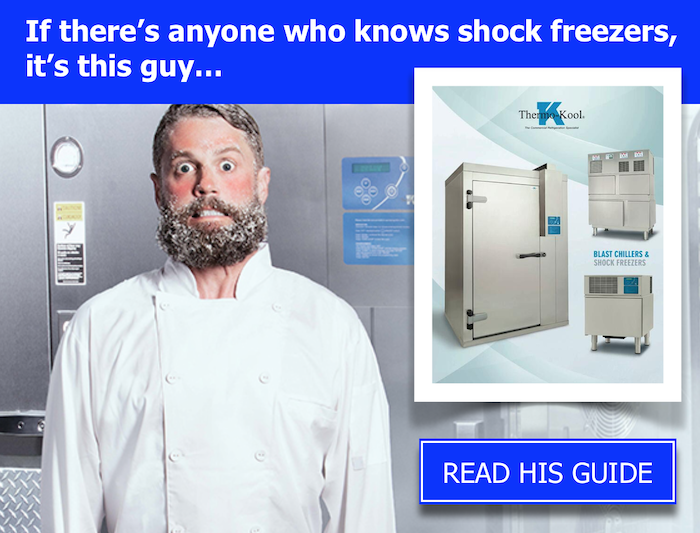How To Store Food in Your Florida Restaurant or Foodservice Operation
Food safety is a primary concern for every area of the commercial kitchen, including in the storage area. Which leads to the question, what are the best ways to store food in your Florida restaurant or foodservice operation?
According to Food Service Warehouse, the following tips will certainly help you understand how to safely preserve your food:
Follow the First In, First Out (FIFO) rule.
The FIFO rule protects both food safety and food quality. Whenever new shipments of food arrive, the newer food is placed behind the older food so the older food is used first; this applies for both cold and dry storage. It also helps to label all food with the date it was received and a "use by" date to assure proper food safety and freshness.
Place meat as low as possible.
Even if it is in a sealed container, meat or meat dishes should be stored below other items so meat juices cannot drip down and contaminate those food items.
Store food in air-tight containers.
Once air contacts food, the food starts to spoil. In order to increase shelf life and maintain food safety and quality, food should be stored in air-tight containers. Use food pans (with lids), ingredient bins and food storage boxes to keep your kitchen organized and safe from infestations and bacteria.
Store all food off the floor.
The 2009 FDA Food Code states that all food must be stored at least six inches above the floor. This is to prevent water, dust or other contaminants from soaking through bags or otherwise contaminating the food. A lot of local health codes go a step further and make the minimum height 12 inches.
Temperature control still applies.
Refrigerators are essential to food safety, but only when they are at the right temperature. Every refrigeration unit should have a refrigerator thermometer so staff can check and make sure food is below the temperature danger zone.
Do not overload refrigeration units.
If there are too many items stacked in a refrigerator, the unit will have to work too hard to maintain the proper temperature. This could create hot spots in which certain areas of the cabinet are not cold enough. The refrigeration unit may even stop working altogether. Blocking the internal and external air vents will also cause the refrigerator to bog down and can result in unsafe storage conditions.
Keep shelves and floors clean and organized.
Use wall shelving and shelving units to keep your kitchen organized. Anywhere there is dirt or food spills, bacteria can grow, so keeping floors and shelves clean are a must for maintaining proper food safety in the kitchen. Organized shelves with the items clearly labeled also decreases the amount of time employees have to hold the door open and locate items.
So what is the solution? What is the best way to store and preserve food at your restaurant?
Thermo-Kool blast chillers and shock freezers make it easy to ensure food safety while increasing your food’s flavor and palatability and reducing profit loss due to food waste. By reducing temperatures at a much faster rate than conventional refrigeration systems, your food stays out of the “danger zone” temperatures for bacteria reproduction. This rapid cooling keeps food fresher longer while locking in flavor and aroma. It also prevents moisture loss which is common with conventional methods.
Thermo-Kool blast chillers and shock freezers reduce the core temperature of cooked foods from 165º to 37º within two hours. With shock freezing temperatures are lowered from 165º to 0º within four hours – which is faster than conventional freezers – exceeding HACCP regulations.
Learn more about blast chillers and shock freezers in this free and comprehensive guide.




